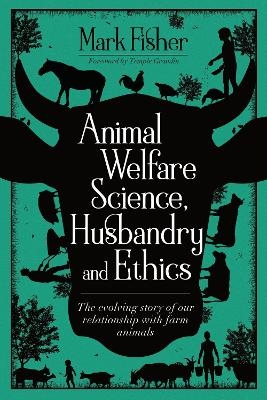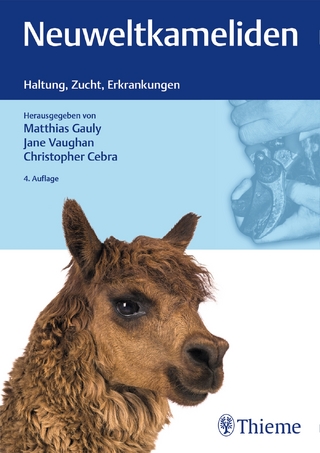
Animal Welfare Science, Husbandry and Ethics: The Evolving Story of Our Relationship with Farm Animals
Seiten
2018
5M Books Ltd (Verlag)
978-1-78918-008-4 (ISBN)
5M Books Ltd (Verlag)
978-1-78918-008-4 (ISBN)
The symbiotic relationship of man and non-human animals is the result of a long intertwined history of the evolution of biological, social and cultural needs. This book explores the development of that relationship.
Animal Welfare has been a subject of intellectual and academic study for a long time. In the past philosophers, thought-leaders and scientists have contributed to the debate, and seismic changes such as the advent of post-war industrial farming have brought about changes in attitudes to the way animals are farmed. Animal welfare as a science and philosophy can be understood as a trajectory through history of our understanding of our relationship with animals, enhanced in recent years through studies into animal behaviour and cognition and societal changes in the way we view animals.
Animal Welfare Science, Husbandry and Ethics charts the history of our understanding of farm animal welfare, throughout time‚ the human use of animals in different eras, and farming in different systems‚ seeing the emergence of intensification and science and technology. The book examines the human-non-human animal relationship with a philosophical approach, examining the connections and disconnections between animals and people, and charts the beliefs and motives of different philosophers, theories and movements in animal welfare from early history to the present. The book also looks at our current animal welfare systems, examining what is working and what is not, the pathway to how we got here, and looks at future considerations for animal welfare putting forward the author's thoughts on achieving a sustainable animal welfare model.
Intended for animal welfare students, teachers, researchers and academic libraries, Animal Welfare Science, Husbandry and Ethics introduces a complex subject requiring an understanding of the underlying factors and drivers of human behaviour and farming systems. Only by acknowledging the complexity, and understanding the factors contributing to that complexity, can we hope to develop an equitable and sustainable animal welfare for the future.
Animal Welfare has been a subject of intellectual and academic study for a long time. In the past philosophers, thought-leaders and scientists have contributed to the debate, and seismic changes such as the advent of post-war industrial farming have brought about changes in attitudes to the way animals are farmed. Animal welfare as a science and philosophy can be understood as a trajectory through history of our understanding of our relationship with animals, enhanced in recent years through studies into animal behaviour and cognition and societal changes in the way we view animals.
Animal Welfare Science, Husbandry and Ethics charts the history of our understanding of farm animal welfare, throughout time‚ the human use of animals in different eras, and farming in different systems‚ seeing the emergence of intensification and science and technology. The book examines the human-non-human animal relationship with a philosophical approach, examining the connections and disconnections between animals and people, and charts the beliefs and motives of different philosophers, theories and movements in animal welfare from early history to the present. The book also looks at our current animal welfare systems, examining what is working and what is not, the pathway to how we got here, and looks at future considerations for animal welfare putting forward the author's thoughts on achieving a sustainable animal welfare model.
Intended for animal welfare students, teachers, researchers and academic libraries, Animal Welfare Science, Husbandry and Ethics introduces a complex subject requiring an understanding of the underlying factors and drivers of human behaviour and farming systems. Only by acknowledging the complexity, and understanding the factors contributing to that complexity, can we hope to develop an equitable and sustainable animal welfare for the future.
Dr Mark Fisher, Manager Animal Welfare, Ministry for Primary Industries, and Director, Kotare Bioethics Ltd. Mark has a background in sheep and beef cattle farming, professional qualifications in animal physiology and zoology and in philosophy and ethics. His professional career has involved on farm animal research, agricultural ethics and currently focuses on the development and implementation of animal welfare standards.
Foreword by Temple Grandin
The simplicity and complexity of animal welfare
Drawing on the wealth of agriculture
High farming and hard work
Husbandry from beyond the farm gate
People are people through animals
Thinking like a mountain
The fall and rise of the hunter-gatherer
| Erscheinungsdatum | 06.02.2019 |
|---|---|
| Vorwort | Temple Grandin |
| Sprache | englisch |
| Maße | 156 x 234 mm |
| Gewicht | 540 g |
| Themenwelt | Veterinärmedizin ► Großtier |
| ISBN-10 | 1-78918-008-2 / 1789180082 |
| ISBN-13 | 978-1-78918-008-4 / 9781789180084 |
| Zustand | Neuware |
| Informationen gemäß Produktsicherheitsverordnung (GPSR) | |
| Haben Sie eine Frage zum Produkt? |
Mehr entdecken
aus dem Bereich
aus dem Bereich
ein Leitfaden zur Diagnostik, Therapie und Prophylaxe bei Lamas und …
Buch | Hardcover (2023)
Schlütersche (Verlag)
CHF 208,55
Buch | Softcover (2023)
John Wiley & Sons Inc (Verlag)
CHF 258,95


